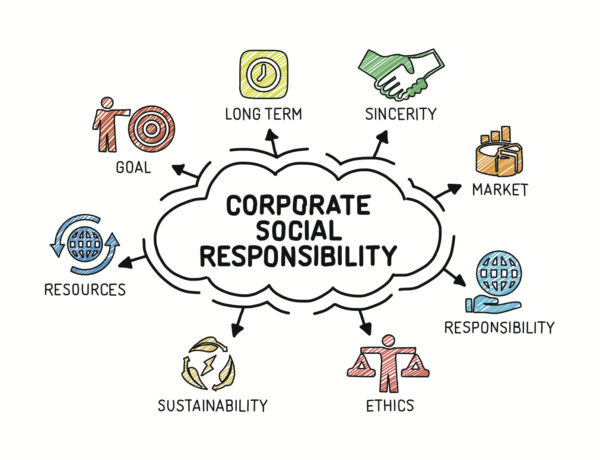The inclusion of Corporate Social Responsibility (CSR) in the Mines and Minerals Amendment bill is of utmost importance as this will ensure that communities fully benefit from the extraction of resources found in their areas.
Currently, in Zimbabwe, there is no particular law that governs CSR, this means that majority of companies that are engaging in CSR initiatives are doing it out of their own free will.
The failure of the government to have a law that mandates miners to practice CSR has seen most mining communities living in abject poverty while mining firms would be reaping huge profits and at the same time destroying the future of the environment.
Chinese-owned mining operations in Zimbabwe and the Artisanal and Small Scale Miners (ASM) have been accused of only extracting resources without giving back to the communities in which they would be mining.
Globally, CSR within the mining sector has evolved to become a central part of mine-community relations. Mining companies now accept that the communities affected by their operations need to have basic services like water, health care, electricity and sanitation. Developing a mine presents an opportunity to improve conditions within these communities and unless the community benefits, the mine risks becoming an enclave.
What is CSR?
CSR is the continuing commitment by businesses to behave ethically and contribute to economic development while improving the quality of life of the workforce and their families as well as the community and society at large.
According to ISO 26000, social responsibility is not merely a “neutralizing” action applied at the end of production/distribution to fix what has been generated or displaced. Rather, it is a proactive mindset that should be incorporated across all levels of planning, execution, and stakeholder interaction.
In ISO 26000, social responsibility is described as a multi-faceted approach that, like quality, should be integrated into all aspects of how a company conducts its business.
Reasons for undertaking CSR
Reasons for undertaking CSR in communities are many ranging from moral and ethical to mere responsibility. Mining companies cause social problems such as environmental degradation, and pollution among others hence have a responsibility to solve those they have caused to prevent further social problems from arising. Hence corporations cannot escape responsibility for those impacts, whether they are positive, negative or neutral. Corporations rely on the contribution of a much wider set of constituencies or stakeholders in society (such as consumers, suppliers, and local communities), rather than just stakeholders as well as those of shareholders.
Why Should CSR be included in the Mines bill?
According to the Chairperson of the Parliamentary Portfolio Committee on Mines and Mining Development Hon Edmond Mkaratigwa, the Mines and Minerals Amendment bill will include ideas that are going to force mining companies to undertake CSR.
“There are a number of ideas but the loud and clear message is that CSR must be made part of our enforceable laws. Ideas are that whatever promises made before project implementation should be followed up and come to fruition. Also, the road network that they use should not be left worse off after extraction. There are many issues and these include contributing to local Trusts and facilitating such to ensure community and investor harmony. It should be further noted that these issues we appear to be forcing on investors may in the near future become a norm as competition shall rise and when such issues we are always raising may become part of the natural selection criteria of investors, as competition rises. Zimbabwe is not static, it is reasserting itself and it is important that investors heed to this call. Key advocacy points we have raised are transforming from mere Corporate Social Responsibility to Corporate Social Investment. Something that leaves sustainable benefits than something that legitimizes the resource curse outcomes common in many other developing countries. Ours is a leap forward and cascading benefits through possible local market enhancement so that we broaden our economy from over dependence on staples,” Mkaratigwa said.
Conclusion
Although mining companies like Zimplats, Mimosa, Unki, Caledonia, and Kuvimba Mining House among others have been leading in CSR, there is a general concern that a law governing CSR should be enacted to prevent mines from extracting without any responsibility.





